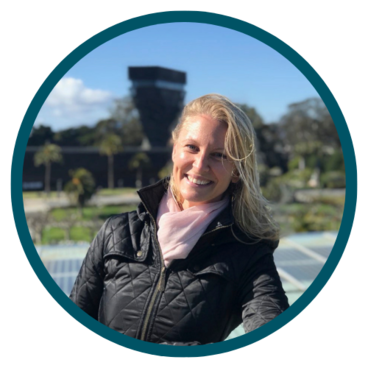
Climate adaptation is a burgeoning field – as such, innovation is important to its evolution and applicability. To support this need, the Midwest Climate Adaptation Science Center (MW CASC) is launching a new special speaker series called “Innovation in Adaptation” which aims to help adaptation researchers and practitioners and those in related fields learn from one another and share inspiring stories about purpose, meaning, and discovery.
“Innovation depends on creativity, insight, and inspiration, as well as a willingness to experiment, test assumptions, and learn from failure. Just as climate adaptation can be thought of as a process not an endpoint, successful innovation typically results from an intentional and iterative process.”
What does transformative adaptation look like?
What might it mean for businesses, communities, or natural resource management? What is the role of the private sector in implementing adaptation strategies?
To discuss these questions and more, we are excited to introduce our inaugural Innovation in Adaptation speaker: Emily Wasley. Currently Head of Climate Resilience and Biodiversity for Meta, Emily is a thought leader in the field of climate adaptation with almost two decades of experience. She serves as a Board member for the American Society of Adaptation Professionals (ASAP), was Lead Author for the Adaptation and Resilience Chapter of the Fifth National Climate Assessment (NCA5), and is a member of Women in Climate Tech (WiCT). Emily is dedicated not only to climate and community resilience, but also empowering everyone to thrive in the face of uncertainty.
On March 7, 2024 from 2-3pm CT, Emily will join Jessica Hellmann, MW CASC Consortium Director and Executive Director of the University of Minnesota’s Institute on the Environment, in a thought-provoking conversation about the Fifth National Climate Assessment, centering equity in adaptation, and the need to move from incremental to transformative adaptation.
This event is virtual, free, and open to the public.
Climate adaptation actions undertaken in the United States to date have generally been small in scale and incremental in approach... Transformative adaptation, which involves more fundamental shifts in systems, values, and practices, will be necessary in many cases to adequately address the risks of current and future climate change.
Our Speakers
 Emily Wasley Emily is a highly accomplished climate change risk, adaptation, and resilience leader with almost 20 years of experience. Currently, Emily serves as Head of Climate Resilience and Biodiversity for Meta company wide. Prior to Meta, she held various leadership roles at organizations such as WSP, The Cadmus Group, the U.S. Global Change Research Program, and Booz Allen Hamilton. She has a strong track record of success in identifying, assessing, managing, monitoring, and reporting the various risks and opportunities associated with the physical risks of climate change and the transition to a low carbon economy consistent with the guidance provided by the Task Force on Climate-related Financial Disclosures (TCFD), the International Sustainability Standards Board (ISSB), European Sustainability Reporting Standards (ESRS), and International Organization for Standardization (ISO) for climate change adaptation. With an understanding of these risks and opportunities, she works collaboratively with multiple partners to co-develop and implement strategies to help businesses and communities adapt to the impacts of climate change and protect biodiversity. |
 Jessica Hellmann Dr. Jessica Hellmann is the Consortium Director of the Midwest Climate Adaptation Science Center. She is also the Executive Director and Ecolab Chair in Environmental Leadership at the University of Minnesota’s Institute on the Environment and Professor in the Department of Ecology, Evolution and Behavior. Her research examines the impacts of climate change on natural and human systems, greenhouse gas emission reduction, and climate adaptation. She was among the first to propose and study techniques to reduce climate impacts on species and ecosystems through ecosystem management. Her work is published in the Proceedings of the National Academy of Sciences, Science, Nature, and leading ecological and conservation journals. She consults with governments, corporations, and non-profits to build investments in renewable energy and adaptation and has co-authored several climate assessment and adaptation planning efforts. |
